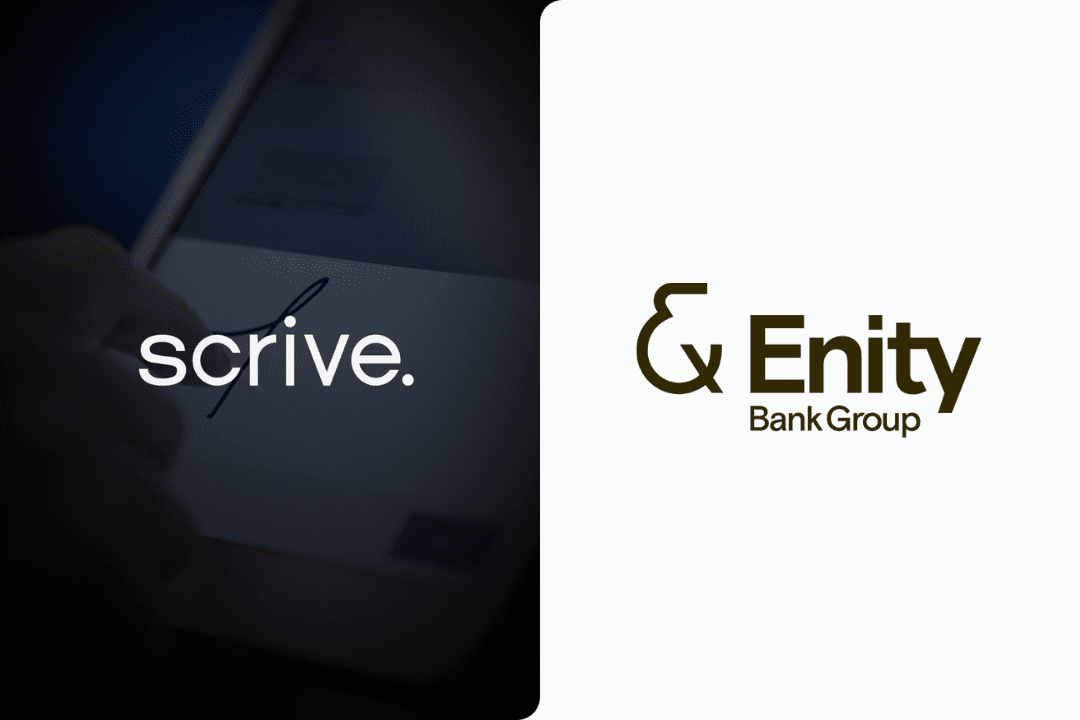
Compliance in action
Discover how businesses are turning to Scrive to transform compliance into a strategic advantage while enhancing customer trust.
Read article
Stringent regulations and compliance measures are essential for safeguarding against financial crimes, money laundering and terrorist financing. Two vital processes that ensure transparency and security in the industry are KYC (Know Your Customer) and KYB (Know Your Business). These processes are instrumental in verifying the identity and legitimacy of customers and businesses, respectively. Although many types of tech can be involved in these processes, electronic signatures have emerged as a surprising game-changer, revolutionising the way these processes are conducted.
This blog aims to shed light on the significance of KYC and KYB processes and to delve into and explore the role of electronic signatures in streamlining banking and fintech operations.
KYC – Know Your Customer
Know Your Customer (KYC) is a critical process employed by banks and fintech companies to authenticate the identity of their customers. It involves collecting and verifying personal information, such as name, address, date of birth and identification documents, to establish a customer’s identity and assess their risk profile. KYC helps institutions mitigate the risks associated with fraud, identity theft and money laundering.
Traditionally, KYC processes involved manual paperwork and physical document submissions. However, the advent of electronic signatures has revolutionised this process. Electronic signatures enable customers to complete KYC formalities remotely, eliminating the need for physical presence and reducing paperwork. Digital platforms like Scrive’s facilitate document signing and submission, making sure the process is secure as well as efficient and cost-effective.
Electronic Signatures and KYC
The integration of electronic signatures into the KYC process has numerous advantages. Firstly, electronic signatures enhance the customer experience by eliminating the inconvenience of lengthy paperwork. Customers can now complete the KYC process from the comfort of their homes, using their computers, tablets or smartphones, saving time and effort.
Secondly, electronic signatures ensure the integrity and security of the documents. Advanced encryption and authentication techniques protect customer information, reducing the risk of data breaches. Digital audit trails also provide a transparent record of the KYC process, offering a higher level of accountability and compliance.
Thirdly, electronic signatures enhance the speed and efficiency of KYC verification for the banks and fintech organisations. The digital nature of the process allows for quick document exchange and verification, significantly reducing the time required to complete the KYC process. This results in the ability to onboard customers swiftly, improving operational efficiency,accelerating customer acquisition and driving customer loyalty at the start of the relationship.
KYB – Know Your Business
Know Your Business (KYB) is a process employed by financial institutions to verify the legitimacy of businesses they engage with. KYB aims to assess the risks associated with business relationships, ensuring compliance with anti-money laundering (AML) and counter-terrorist financing (CTF) regulations.
Similar to KYC, electronic signatures have streamlined the KYB process. Businesses can now submit necessary documents, such as registration certificates, tax filings and ownership details, electronically using secure platforms. Electronic signatures facilitate the authentication and verification of these documents, enhancing the accuracy and speed of the KYB process.
Benefits of Electronic Signatures in KYB
Integrating electronic signatures into the KYB process offers several advantages. Firstly, it eliminates the need for physical document submissions, reducing administrative burdens and costs for both businesses and financial institutions. Digital processes also enable efficient record-keeping and document management, ensuring easy retrieval, which is particularly useful in the event of a compliance audit.
Secondly, electronic signatures enhance the security and integrity of business documents. Robust encryption and authentication protocols protect sensitive information, mitigating the risk of unauthorised access or tampering.
Lastly, electronic signatures accelerate the KYB verification process, enabling businesses to establish relationships with financial institutions quickly. This expedites onboarding processes and fosters efficient business collaborations.
Conclusion
The integration of electronic signatures into the KYC and KYB processes has revolutionised banking and fintech operations. Electronic signatures offer enhanced security, efficiency and convenience, ensuring a seamless customer experience and streamlined compliance. As financial institutions continue to embrace technological advancements, electronic signatures will play an increasingly pivotal role in simplifying and accelerating these critical processes. By leveraging the power of electronic signatures, the industry can achieve greater operational efficiency, reduce costs and foster a robust and secure banking and fintech ecosystem.

Discover how businesses are turning to Scrive to transform compliance into a strategic advantage while enhancing customer trust.
Read article
Explore how the regulatory landscape is redefining digital agreements and the impact of eIDAS 2.0 on identity verification.
Read article
We are excited to announce that Scrive is now Enity Bank Group’s exclusive provider of e-signature and ID verification solutions in the Nordics.
Read article